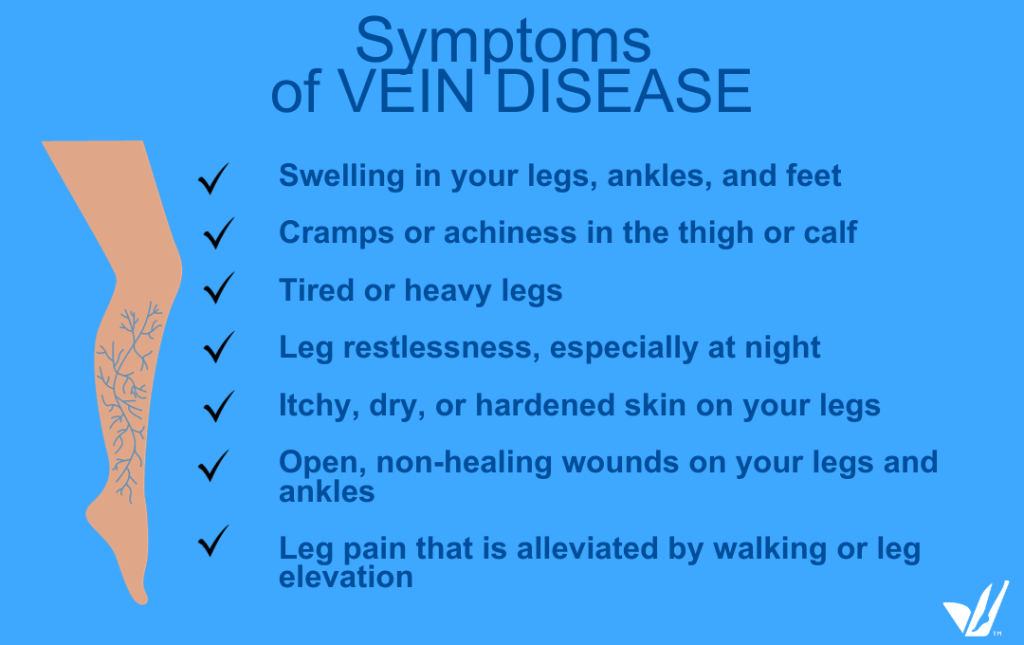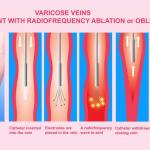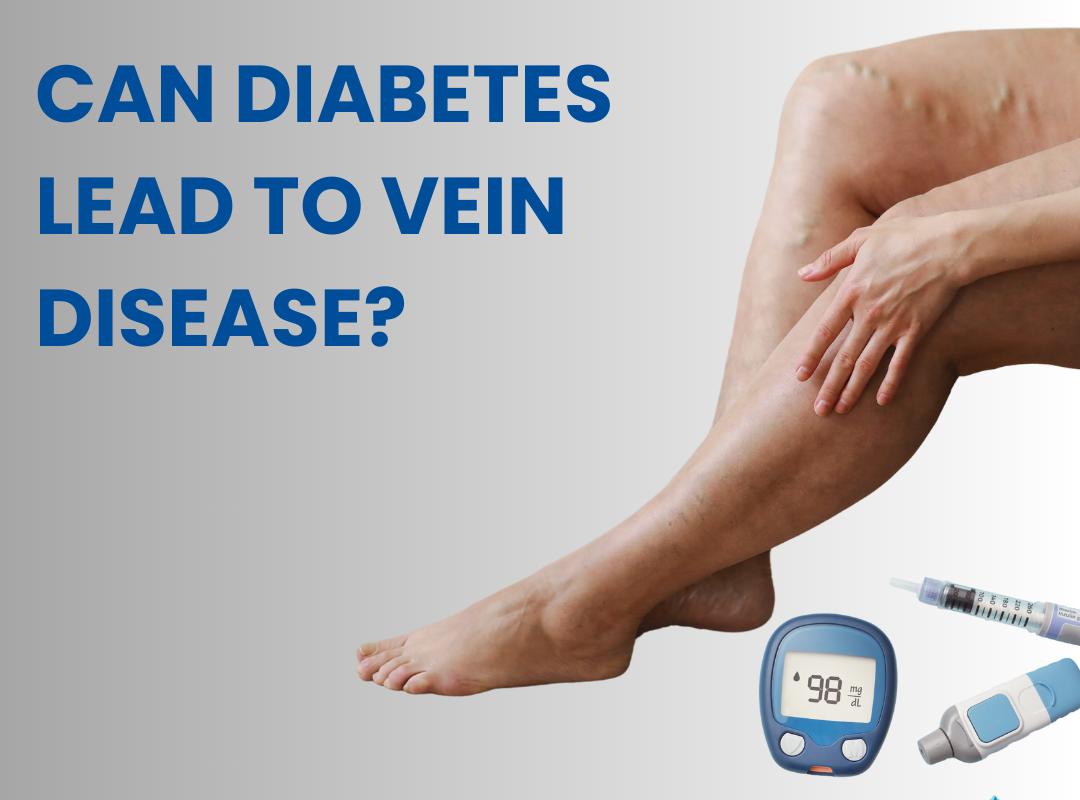
Do you wonder…?
- How is Diabetes Is Linked to Vein Health?
- What Is Vein Disease?
- Diabetes, Vein Disease, and Vascular Disease
- How To Reduce Your Risks For Diabetes and Varicose Veins
- Vein Disease Treatment at USA Vein Clinics
Diabetes is a chronic disease that affects millions of people worldwide. It is most commonly known for its impact on blood sugar levels, but diabetes can also damage blood vessels throughout the body, including the veins.
Veins are responsible for returning blood to the heart from the rest of the body. When veins are damaged, blood can pool in the legs and feet, leading to a variety of problems, including varicose veins , spider veins and leg ulcers.
People with diabetes are at an increased risk for vein disease. This is because high blood sugar levels can damage the walls of veins and make them more likely to leak and pool. Additionally, people with diabetes often have nerve damage, which can make it difficult to feel pain in the feet and legs. This can lead to delays in seeking treatment for foot ulcers, which can lead to serious complications, such as amputation.
How is Diabetes Linked to Vein Health?
High blood glucose levels can weaken and damage blood vessels over time. This makes the veins more susceptible to infection, inflammation, and weakness. As a result, people with diabetes are at an increased risk for vascular disease, which can lead to a variety of serious complications, including circulatory issues, nerve damage, and tissue damage.
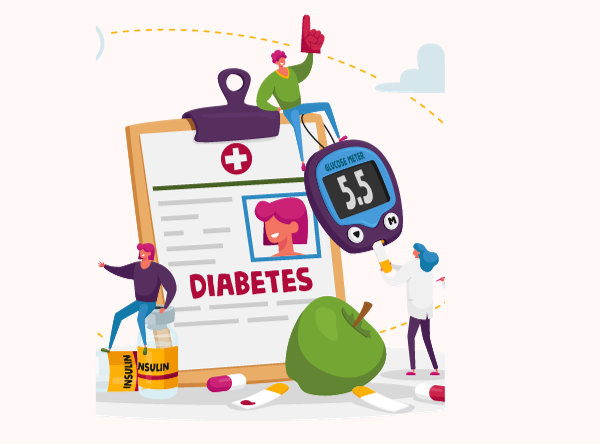
If you have diabetes, it is important to be aware of the signs and symptoms of vein disease. These include leg pain, swelling, varicose veins, spider veins, and changes in skin color or temperature in the legs and feet. If you experience any of these symptoms, it is important to be seen by a doctor.
Early diagnosis and treatment of vein disease can help to prevent serious complications.
What Is Vein Disease?
Vein disease, a type of vascular disease, occurs when tiny one-way vein valves begin to malfunction. This can be a result of many different factors, including age, genetics, obesity, inactivity, poor diet, smoking, and prolonged periods of sitting or standing.
Vein disease can cause blood to flow slowly or to pool, most often in the legs, ankles, and feet. This may eventually lead to the development of varicose veins and spider veins, along with painful and uncomfortable leg symptoms.
Diabetes, Vein Disease, and Vascular Disease
Vascular disease, which refers to any condition that affects your circulatory system including arteries, veins, and lymph vessels, is one of the more severe complications of diabetes. When too much glucose is circulating in the blood, it damages blood vessels, leading to vascular diseases, including vein disease. Vascular Disease includes varicose veins; diabetic macular edema (DME), nephropathy, atherosclerosis, and PAD.
Varicose Veins
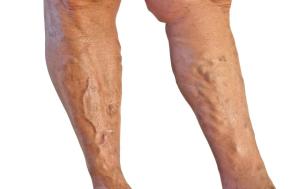
Varicose veins can lead to painful venous symptoms like leg swelling, cramping, itching, and fatigue. You can also be at an increased risk for dangerous health conditions like deep vein thrombosis (DVT) and venous ulcers.
Diabetic Macular Edema (DME)
Diabetic Macular Edema (DME) is a complication of diabetic retinopathy that is located at the center of the retina. The swelling of a specific area of the retina called the macula. Symptoms of DME include recurring floating spots and blurred vision. Diabetic retinopathy occurs as a result of changes to blood vessels in the retina. Vision can become distorted; in severe cases it can cause blindness.
Nephropathy
Diabetic neuropathy is common, affecting about half of diabetics. High blood sugar can damage nerve fibers in the body –- especially in the hands and feet. People with neuropathy often suffer from pain and numbness in their extremities.
Atherosclerosis
Atherosclerosis is caused by artery wall damage, often from high blood pressure, cholesterol, smoking, or diabetes. Plaque buildup restricts blood flow throughout the body.
Peripheral Artery Disease (PAD)
Peripheral artery disease (PAD) is caused by narrowed or blocked arteries leading to the legs. It can reduce mobility, quality of life, and increase risk of heart disease and stroke. Risk factors include diabetes, smoking, high blood pressure, abnormal cholesterol, overweight/obesity, lack of exercise, age over 50, and family history of heart disease or stroke.
How To Reduce Your Risks For Diabetes and Varicose Veins
Many of the best practices for managing diabetes can also benefit the health of your veins.
Here are some tips for protecting your veins:
- Manage your blood sugar levels effectively.
- Eat a healthy diet that is low in saturated and trans fats, cholesterol, and sodium.
- Exercise regularly for at least 30 minutes most days of the week.
- Maintain a healthy weight.
- Quit smoking.
- Get regular checkups and screenings from your doctor.
Early detection and treatment of vein disease is best practice for improved circulatory health. It can also help prevent future complications, especially in diabetics.
Vein Disease Treatment at USA Vein Clinics
If you suffer from vein disease caused by diabetes, our vein specialists at USA Vein Clinics are available to help. Our nationwide network of over 100 clinic locations offers a range of minimally invasive, office-based vein treatments. This approach can quickly alleviate painful venous symptoms, reduce your risk of additional diabetic vein problems, and improve your quality of life. Our non-surgical treatments typically take under an hour, from start to finish.
To discover which treatment is best for you, please contact us at 888.768.3467 or schedule an appointment online. We also offer convenient virtual doctor visits.
[1] “National Diabetes Statistics Report.” Centers for Disease Control and Prevention. Centers for Disease Control and Prevention, January 18, 2022. https://www.cdc.gov/diabetes/data/statistics-report/index.html.

